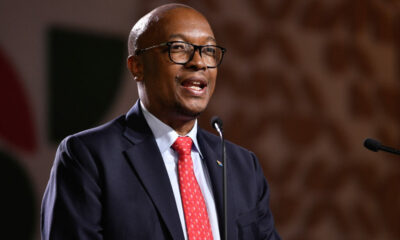Business
DA Takes Legal Aim at New Employment Equity Targets in South Africa

South Africa’s Democratic Alliance (DA) is heading to court in a high-stakes challenge against a controversial new employment equity law that sets racial targets for large companies—a move the party says is unconstitutional and harmful to the country’s economy.
The Employment Equity Amendment Act, which came into effect in January 2025, gives the labour minister sweeping powers to prescribe race- and gender-based targets for management and professional roles in different sectors. The law is aimed at correcting historic inequalities stemming from decades of apartheid rule.
But the DA, South Africa’s second-largest political party and part of the national coalition government, argues the law is discriminatory and risks doing more harm than good.
“We opposed it from the beginning, for the key reason that it will continue to drive unemployment up and economic growth down,” said DA Federal Chairperson Helen Zille during a press briefing on Monday.
She warned that the policy will deter investment and place a heavy compliance burden on businesses already struggling with high costs, low confidence, and a volatile economic environment.
DA vs ANC: Tensions Rise Within Coalition
The legal challenge is also creating tension within the fragile coalition government. The ruling African National Congress (ANC), which supports the targets, slammed the DA’s court bid, saying it was an attempt to undermine transformation efforts.
“This move is a clear attempt to reverse the progress made since 1994 and maintain the unfair status quo,” said a spokesperson from the labour ministry.
While the ANC believes these legally binding targets are necessary to correct structural inequality, the DA sees them as punitive and counterproductive.
What the Law Says
Under the new law:
-
Companies with more than 50 employees must meet government-set race and gender targets or justify their failure to do so if they want to qualify for government contracts.
-
The targets apply to 18 key sectors, including mining, manufacturing, and agriculture.
-
In mining, for instance, 57.5% of top management roles must be held by Black, Indian, or Coloured individuals over the next five years.
The government says the law closes loopholes in the previous system, where companies could set their own targets—often with little oversight or enforcement. Critics, however, argue that the policy will be hard to implement fairly and transparently and may lead to unintended consequences.
The Bigger Picture: Race, Inequality, and Investment
South Africa remains deeply divided along racial and economic lines. Despite being only 7% of the population, white South Africans still occupy around 66% of top private sector jobs. In contrast, Black South Africans are disproportionately represented among the unemployed and in low-wage work.
The country’s Black Economic Empowerment (BEE) policies have helped create a Black middle class and opened some doors, but critics argue they’ve also been abused to enrich a small elite linked to political power.
The DA believes the new approach penalizes growth and risks driving talent and capital away from the country. Smaller companies—those with fewer than 50 staff—are exempt from the targets, which the DA says discourages firms from scaling up.
Adding fuel to the fire, U.S. President Donald Trump has recently weighed in, accusing South Africa of “anti-white discrimination” and offering refugee status to white South Africans. The move has added an international spotlight to what is already a politically charged issue at home.
What Comes Next?
The court case could set a major precedent for how far South Africa’s government can go in legislating transformation in the private sector. It will also test the cohesion of the coalition government, as two of its biggest parties face off in a legal showdown.
As the debate continues, businesses, investors, and job seekers alike will be watching closely to see how the outcome shapes South Africa’s evolving labour landscape.
{Source: IOL}
Follow Joburg ETC on Facebook, Twitter , TikTok and Instagram
For more News in Johannesburg, visit joburgetc.com



























